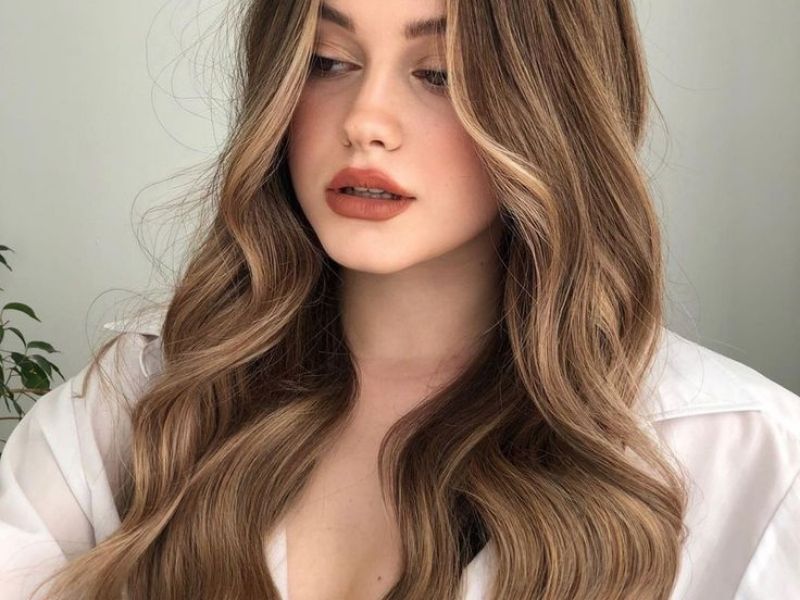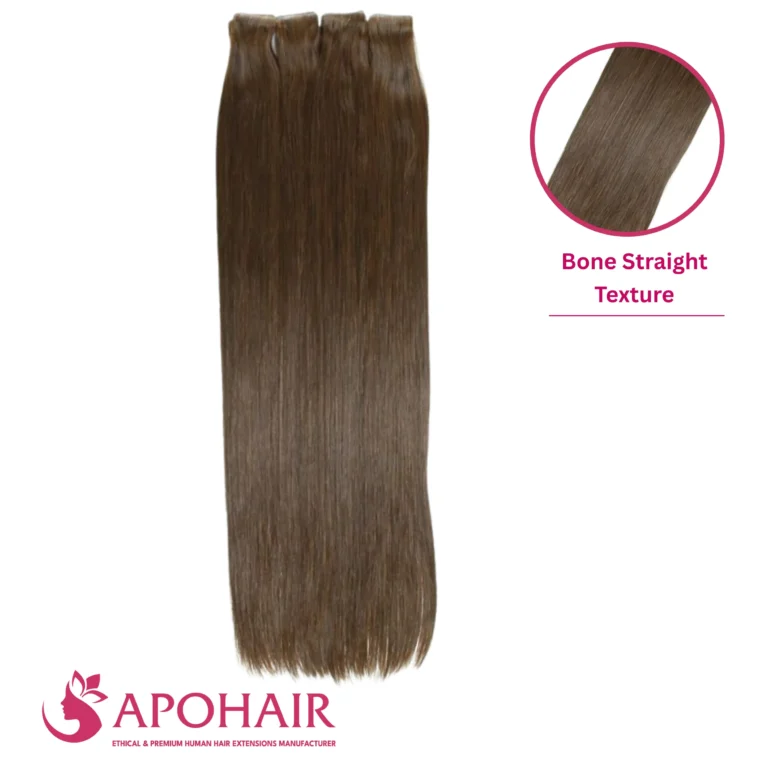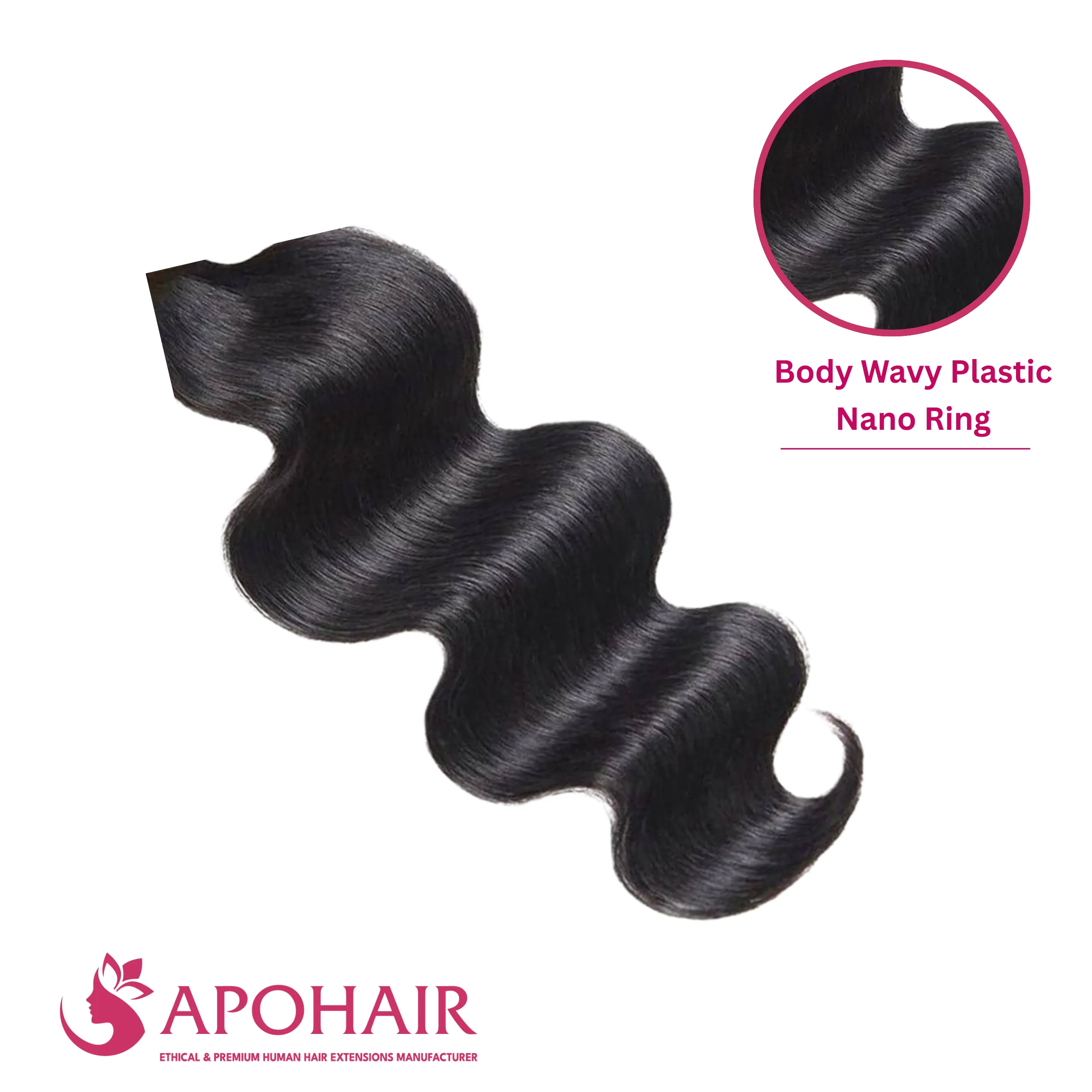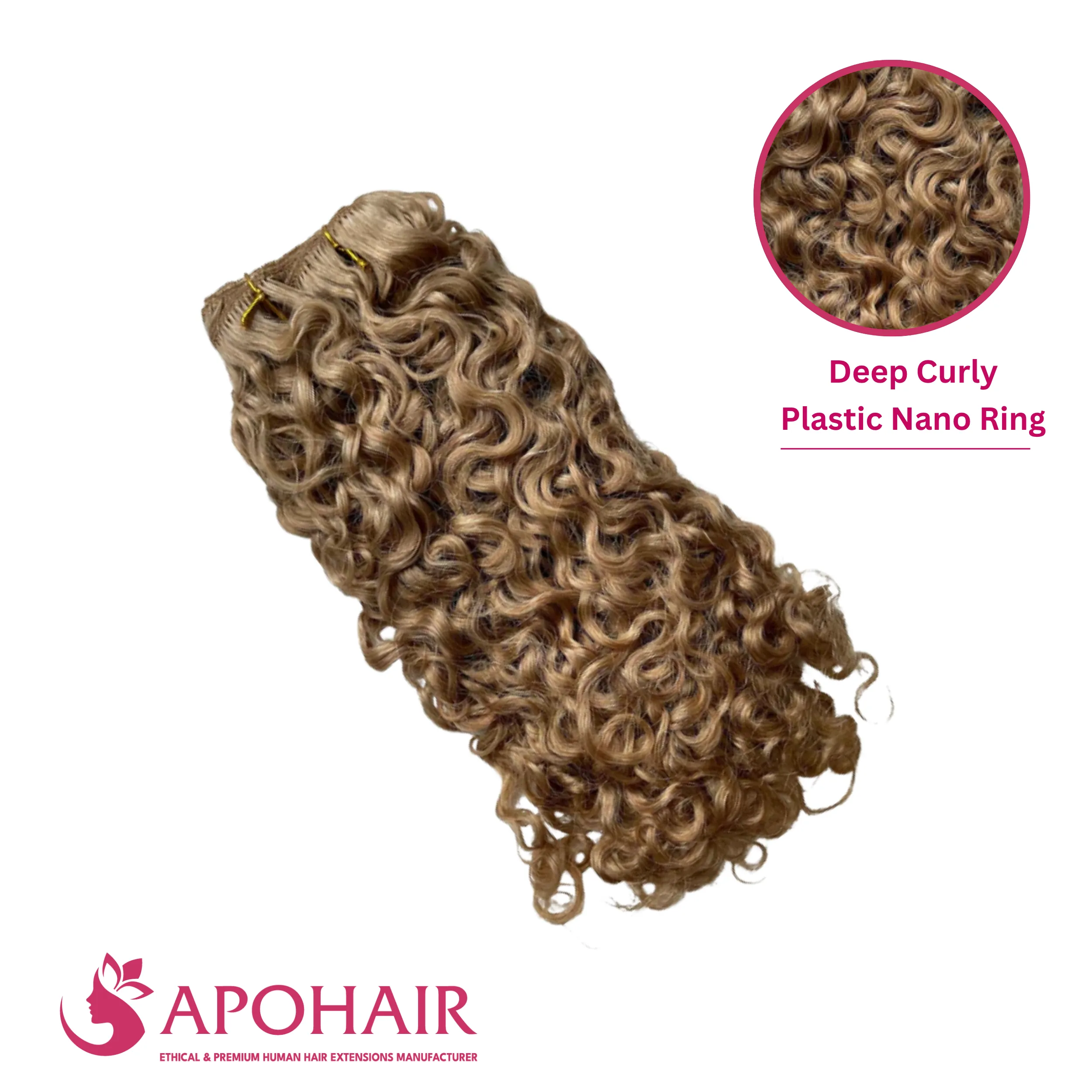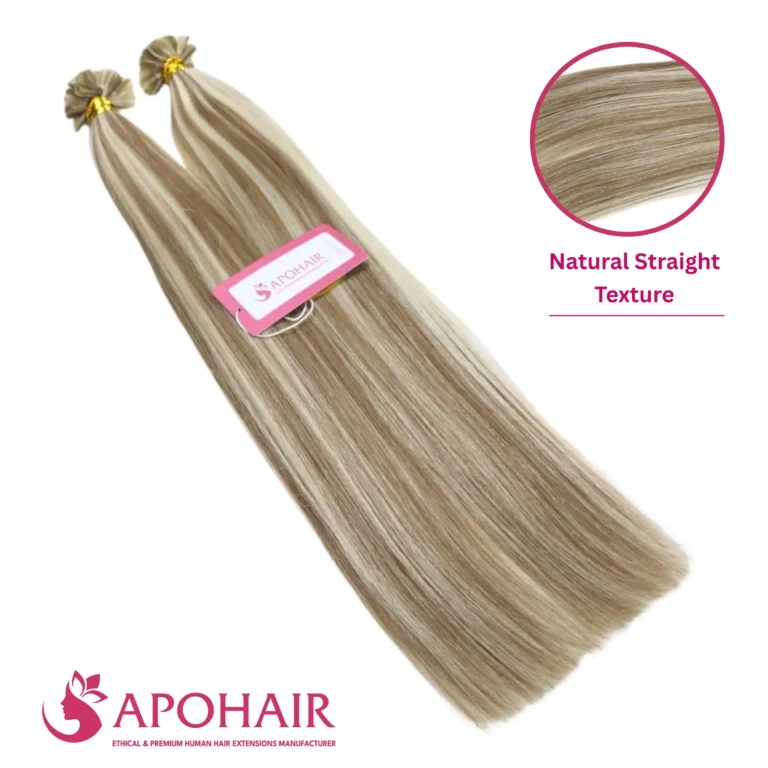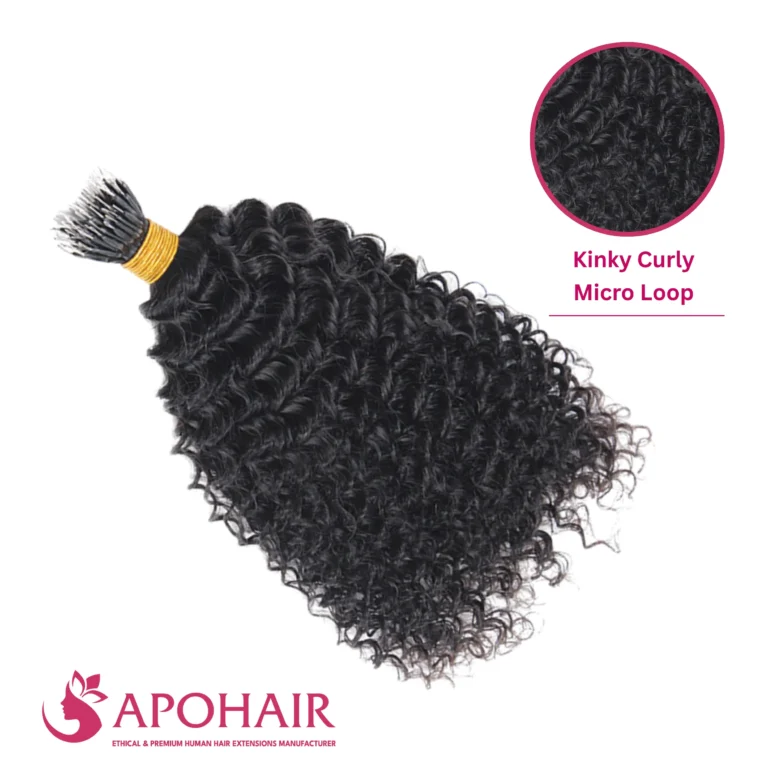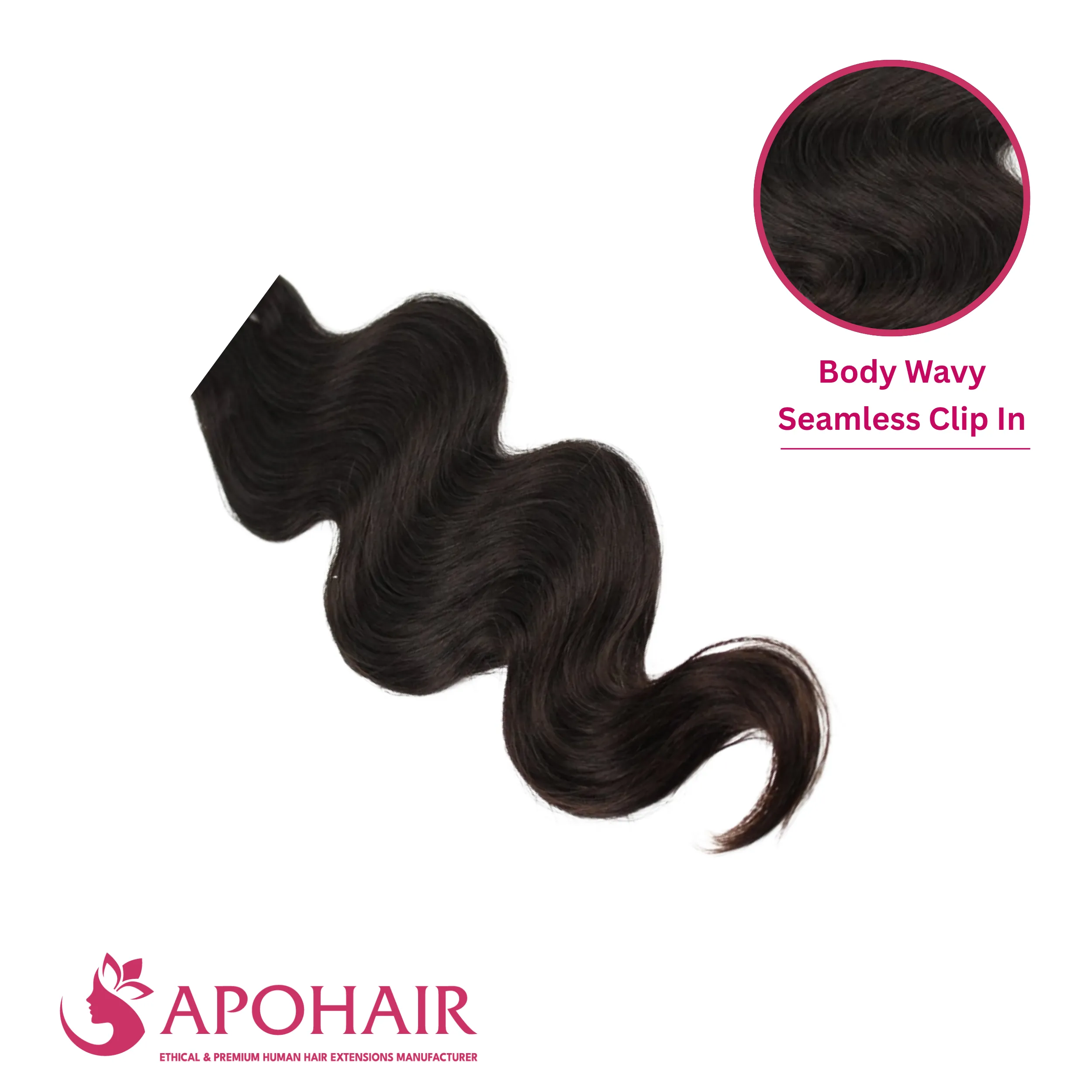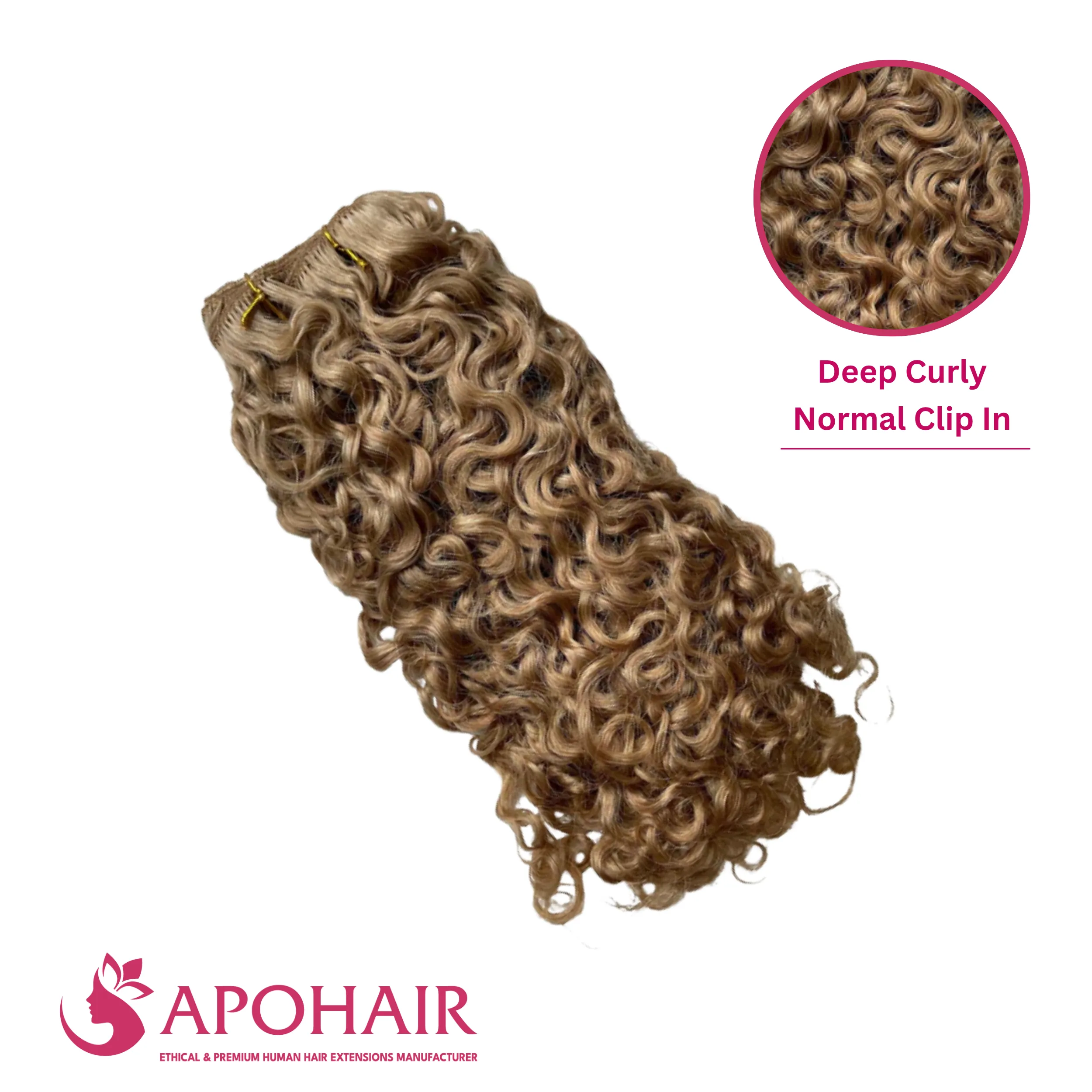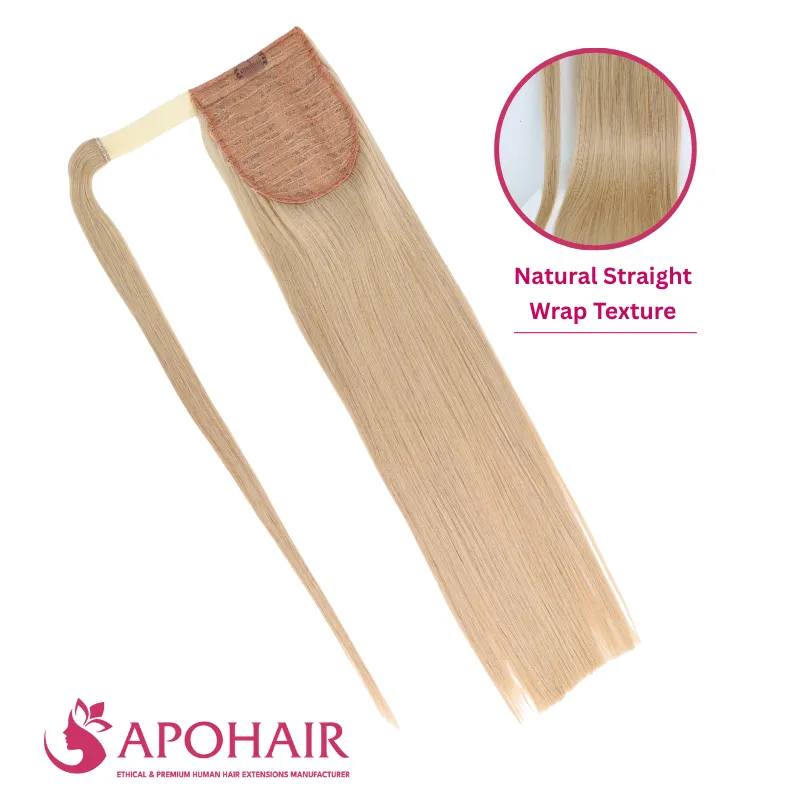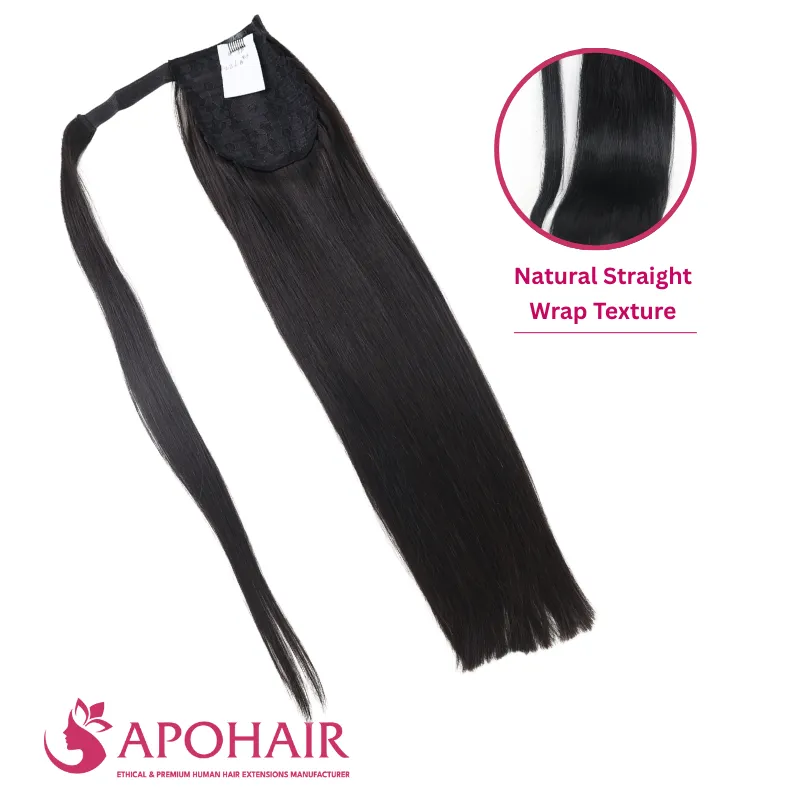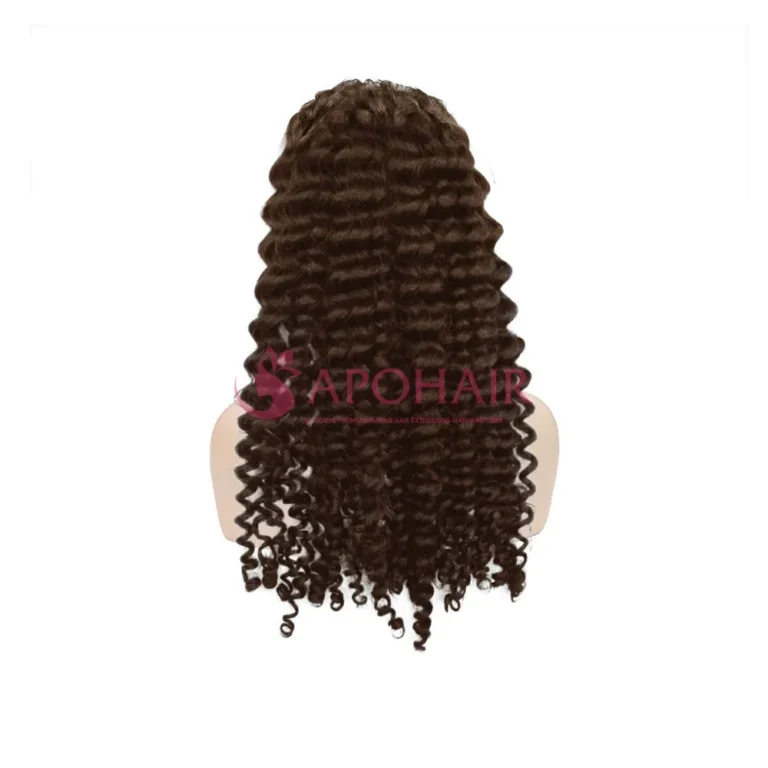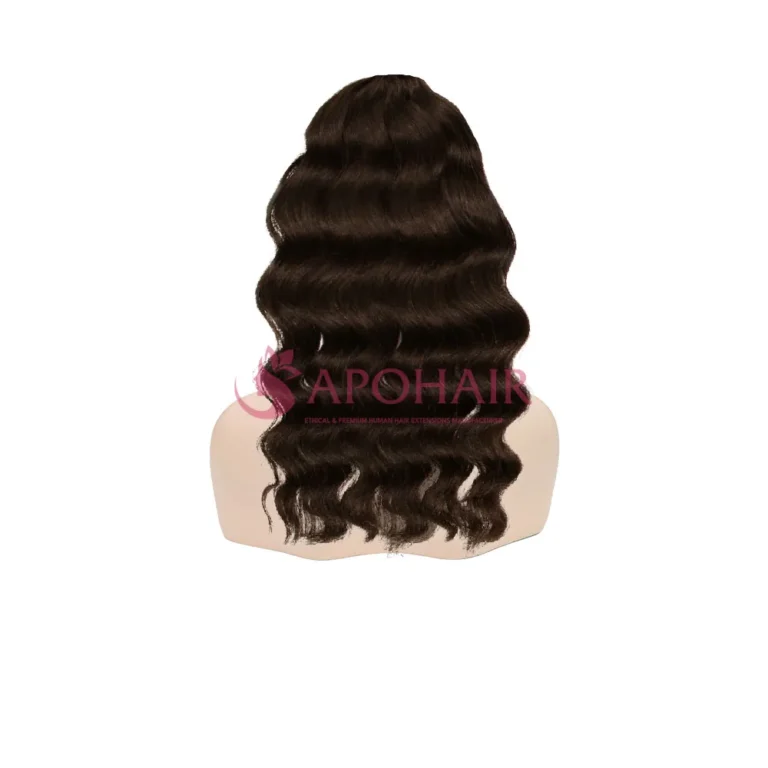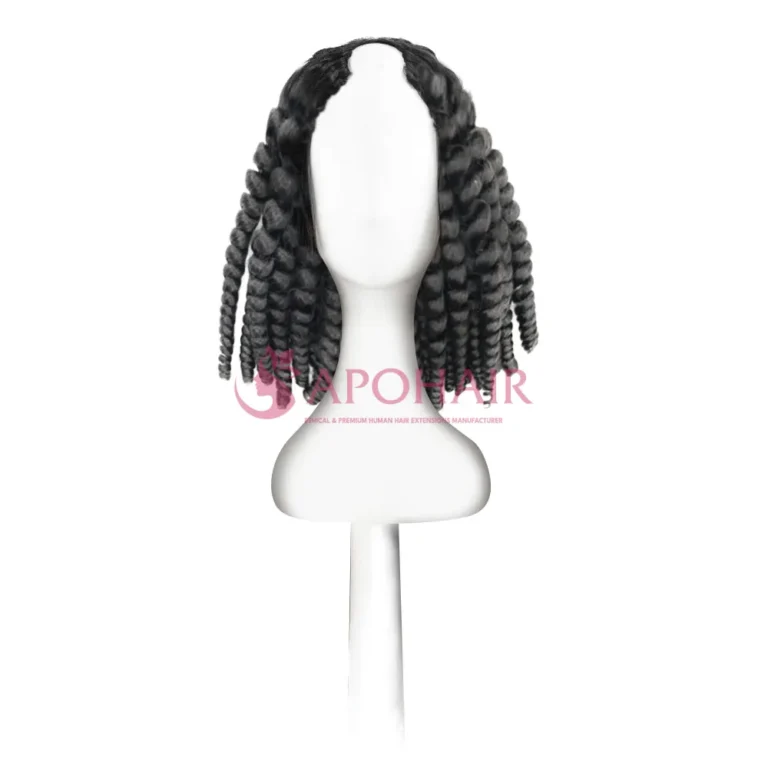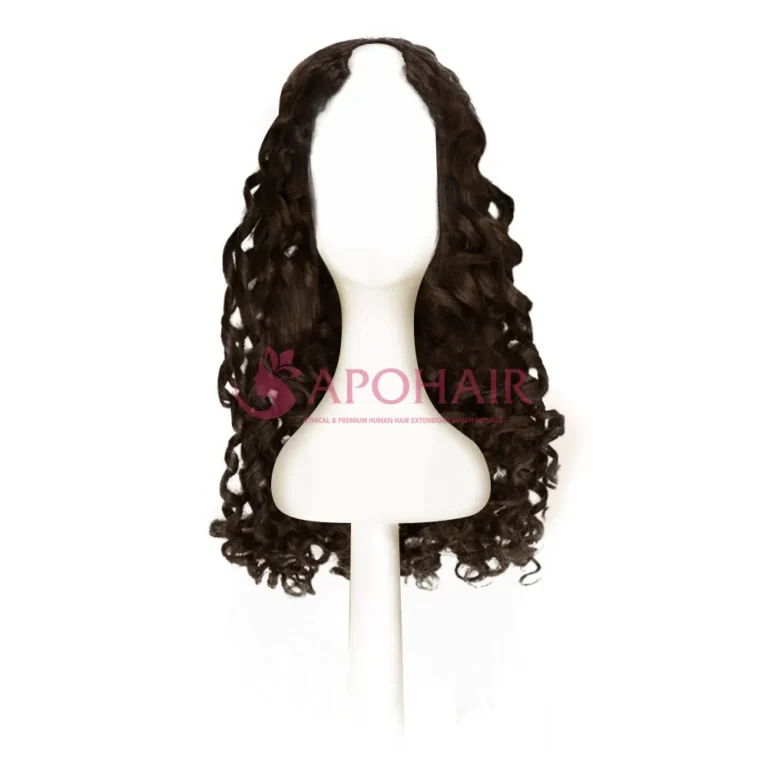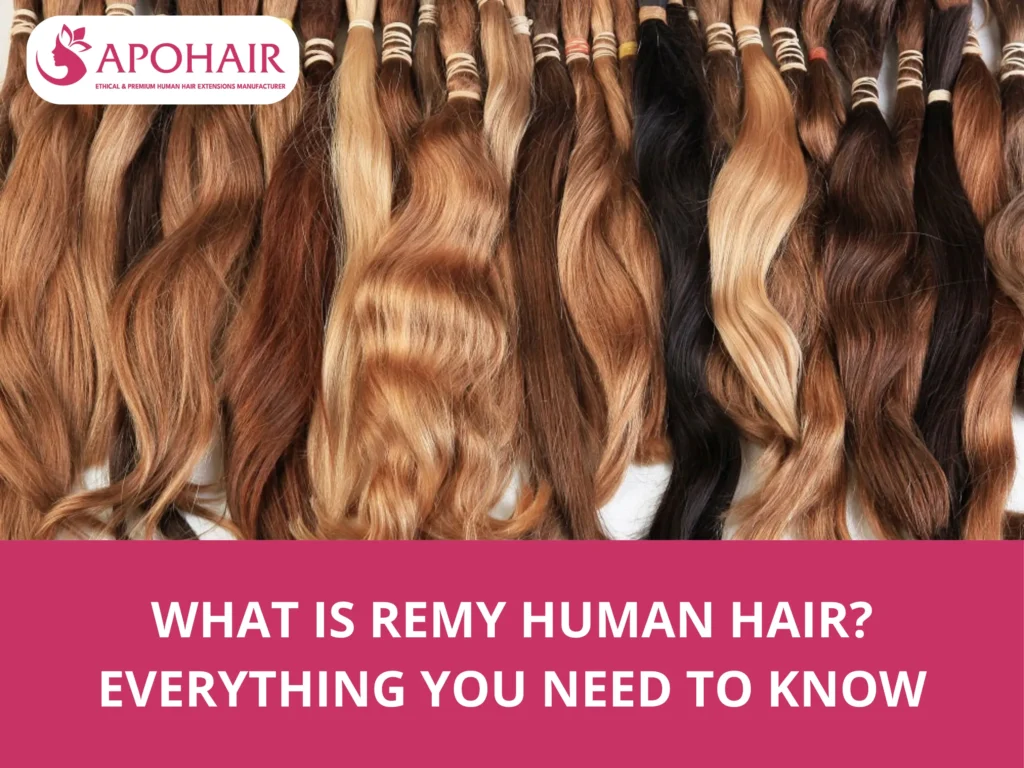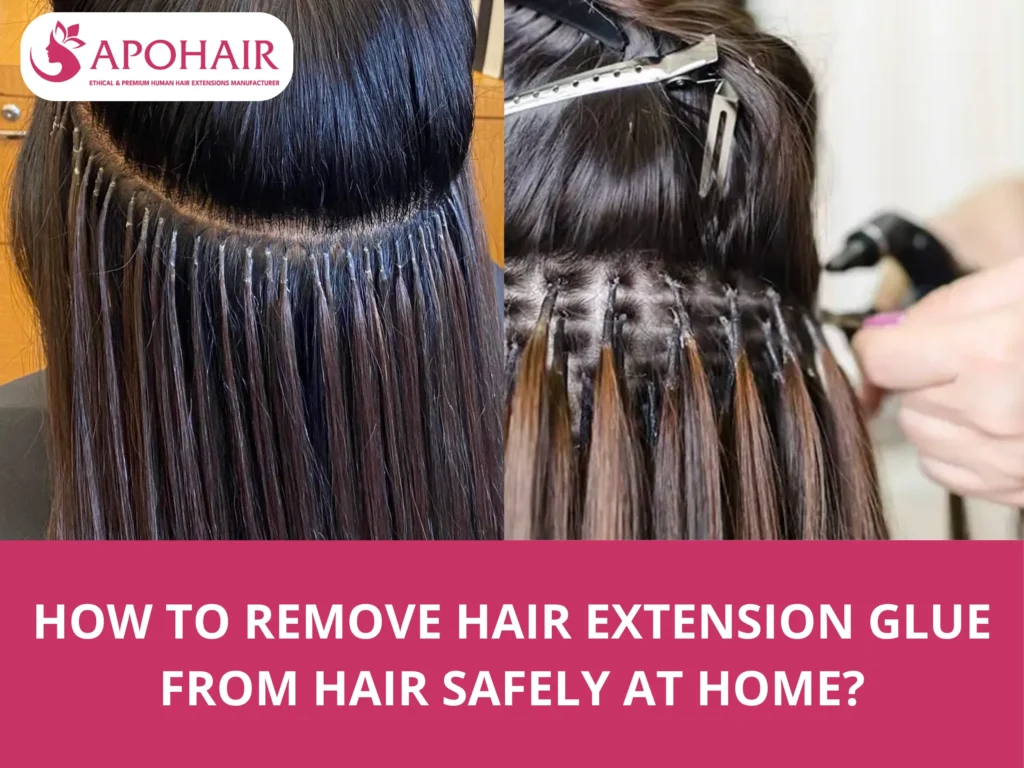Why Is My Hair Stringy and How Can I Fix It?
Have you ever wondered why your hair looks stringy, limp, and greasy, even after washing it? If so, you are not alone. Many people struggle with stringy hair, which can ruin your hairstyle and lower your confidence. But, why is my hair stringy? Stringy hair is a common hair problem that can affect any hair type, length, and color. But what causes stringy hair, and how can you prevent and treat it? In this blog post, we will answer these questions and give you some tips on how to get rid of stringy hair and achieve smooth, shiny, and healthy hair.
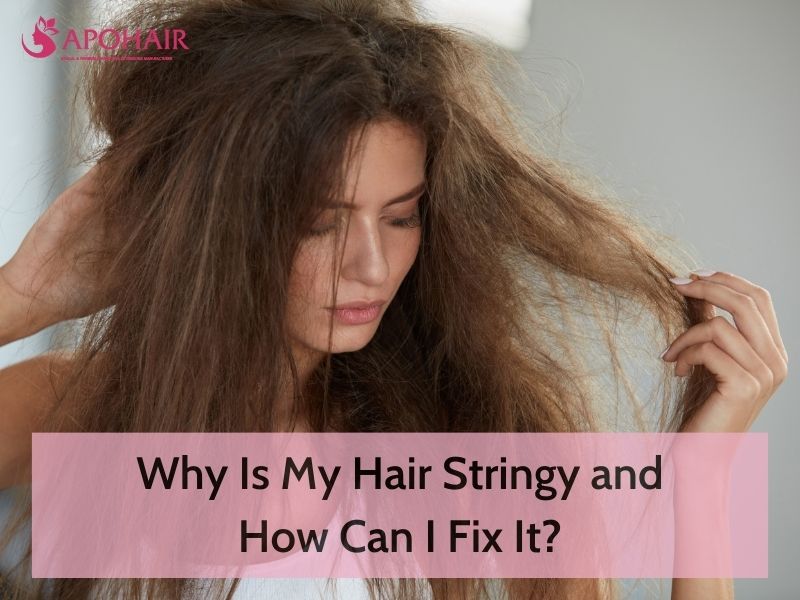
Why Is My Hair Stringy?
Stringy hair is caused by a buildup of oil, dirt, and product residue on your hair strands, which weighs them down and makes them stick together. This can happen for various reasons, such as:
- Washing your hair too often or not often enough: Washing your hair too often can strip your hair of its natural oils, which can make it dry and brittle. Washing your hair not often enough can allow your hair to accumulate oil, dirt, and product residue, which can make it greasy and stringy.
- Using the wrong shampoo and conditioner: Using a shampoo and conditioner that is not suitable for your hair type, texture, or condition can either dry out your hair or leave behind a film that can make it look dull and stringy.
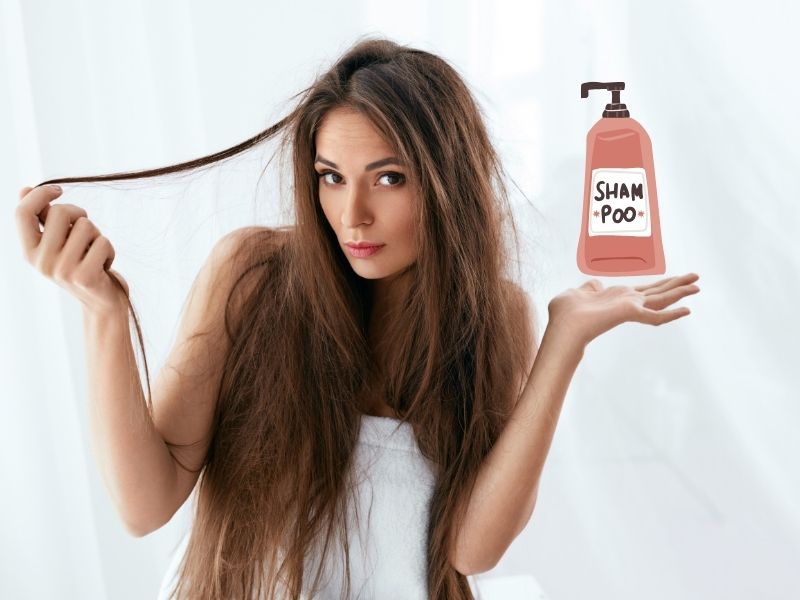
- Applying too much or too little product: Applying too much product can weigh down your hair and make it look greasy and stringy. Applying too little product can leave your hair unprotected and prone to damage and frizz.
- Using the wrong styling tools and techniques: Using a hair dryer, a curling iron, or a flat iron that is too hot or too close to your hair can damage your hair cuticles and make them rough and uneven. This can make your hair look frizzy and stringy. Using a brush or a comb that is not gentle or clean can also pull and break your hair and spread oil and dirt along your hair shafts.
- Having damaged or unhealthy hair: Having split ends, breakage, or hair loss can make your hair look thin and stringy. Having a scalp condition, such as dandruff, psoriasis, or eczema, can also affect your hair quality and appearance.
How to Fix Stringy Hair and Prevent It?
So, you know the answer to the reason why is my hair stringy. The good news is that stringy hair is not a permanent condition, and it can be prevented and treated with some simple changes in your hair care routine and habits. So, how to get rid of stringy hair? Here are some tips on how to avoid and get rid of stringy hair:
1. Wash Your Hair Properly And Regularly
Wash your hair with a gentle, sulfate-free shampoo and conditioner that is suitable for your hair type, texture, and condition. Wash your hair every 2-3 days, or as often as needed, depending on your hair and scalp condition. Rinse your hair thoroughly with lukewarm water to remove any traces of shampoo and conditioner.
2. Use The Right Amount And Type Of Product
Use a lightweight, oil-free, and alcohol-free product that is designed for your hair type, texture, and style. Use only a small amount of product and apply it evenly to your hair, avoiding the roots and the scalp. Choose a product that adds moisture, shine, and protection to your hair, such as a leave-in conditioner, a serum, or a spray.
3. Use The Right Styling Tools And Techniques
If you still wonder why is my hair stringy but don’t know how to use the right styling tools and techniques to prevent it, this part is for you. Use a hair dryer, a curling iron, or a flat iron that has a temperature control and a ceramic or tourmaline coating.
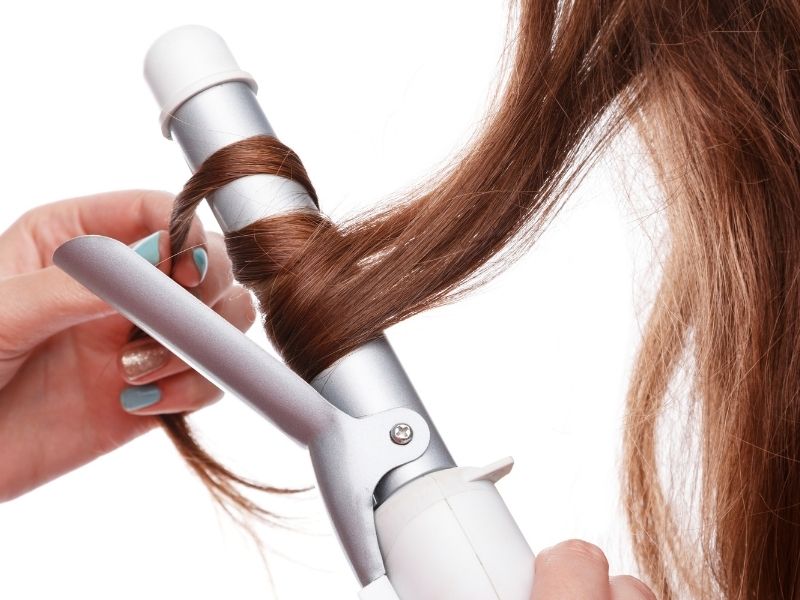
Use the lowest heat setting possible and keep the tool at least an inch away from your hair. Use a heat protectant spray before styling your hair to prevent heat damage. Use a wide-tooth comb or a boar bristle brush to detangle and smooth your hair gently. Clean your tools regularly to remove any oil, dirt, and product buildup.
4. Trim Your Hair Regularly And Treat Your Scalp Condition
Trim your hair every 6-8 weeks to get rid of split ends and damaged hair. This will make your hair look healthier and fuller. If you have a scalp condition, such as dandruff, psoriasis, or eczema, consult a dermatologist or a trichologist for diagnosis and treatment. Use a medicated shampoo or a natural remedy to soothe and heal your scalp.
5. Use Natural Home Remedies
Stringy hair often results from a lack of moisture, overuse of harsh hair care products, or environmental factors. Here are some natural home remedies to help prevent and address stringy hair:
Coconut Oil Treatment
- Massage warm, virgin coconut oil into your hair and scalp.
- Leave it on for at least 30 minutes (or overnight for deeper conditioning).
- Wash your hair with a mild sulfate-free shampoo.
Aloe Vera Gel Mask
- Mix aloe vera gel with a few drops of your favorite essential oil.
- Apply the mixture to your hair and scalp.
- Leave it on for 30 minutes before rinsing with water.
- With aloe vera gel mask, we can easily prevent stringy and know why is my hair stringy.
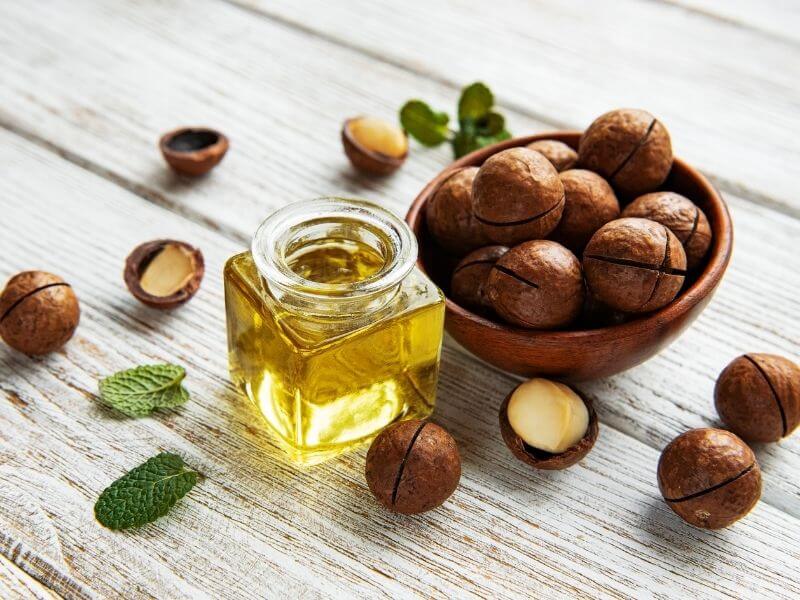
Apple Cider Vinegar Rinse
- Dilute apple cider vinegar with water in a 1:1 ratio.
- Use it as a final rinse after shampooing.
- This helps balance the pH of your hair and leaves it shiny.
Related article: Apple Cider Vinegar For Your Hair
Banana and Honey Mask
- Mash a ripe banana and mix it with a tablespoon of honey.
- Apply the mixture to your hair and let it sit for 30 minutes.
- Rinse thoroughly with water.
Stringy hair is a common hair problem that can affect anyone, but it can be easily prevented and treated with some simple changes in your hair care routine and habits. By following these tips, you can say goodbye to stringy hair and hello to smooth, shiny, and healthy hair.
How to Style Stringy Hair
If you have thin stringy hair, you might think that there is no way to style it and make it look good. However, this is not true. There are some hairstyles and tricks that can help you disguise and improve your stringy hair. Here are some ideas on how to style stringy hair:
1. Braid Your Hair
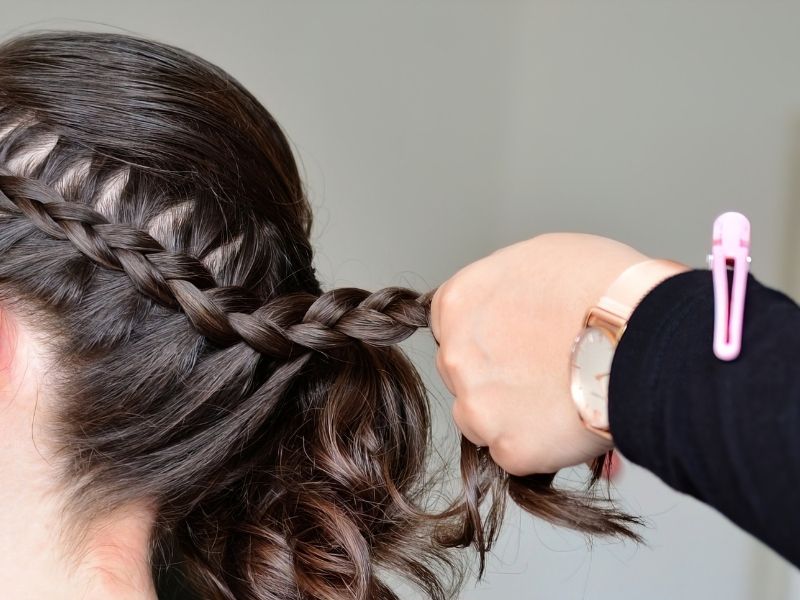
2. Put Your Hair Up
“Why is my hair stringy?” Putting your hair up can lift your roots and make your hair look more voluminous and less stringy. You can try different types of updos, such as a bun, a ponytail, or a half-up half-down style. You can also tease your crown and add some hairspray to create some height and texture.
3. Curl Or Wave Your Hair
Curling or waving your hair can add some bounce and movement to your hair and make it look less limp and greasy. You can use a curling iron, a flat iron, or a curling wand to create some loose waves or curls. You can also use some rollers, braids, or twists to create some natural waves or curls overnight.
You may interested in: 8 Easy DIY Methods To Make Gorgeous Waves
4. Add Some Color Or Highlights
